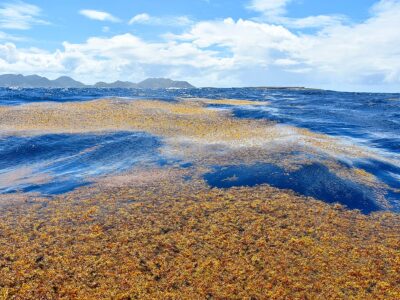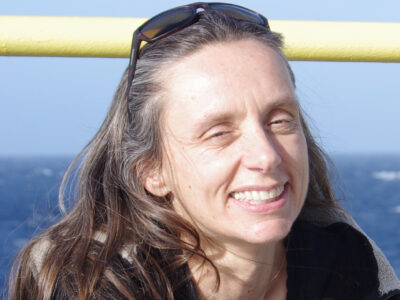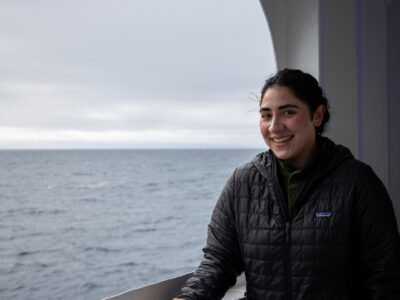The National Science Foundation (NSF) has awarded the Lamont-Doherty Earth Observatory and partner institutions $4 million to develop an innovative cyberinfrastructure that will integrate scientific samples into a digital data ecosystem: iSamples, the ‘Internet of Samples.’

Lamont geoinformatics specialist Kerstin Lehnert is serving as principal investigator. All too often, she says, researchers go to great trouble and expense to collect samples at sea, in polar regions, or in other remote areas, only to have the samples gather dust or even get thrown away after they’ve served their original purpose. Over the next four years, the iSamples project will create a system where researchers across disciplines and throughout the world can share and access metadata on existing samples.
“This will establish an infrastructure that hopefully changes the culture. In many universities and institutions, collections get thrown out. With iSamples they will be [uniformly] registered and their use can be tracked, paving a way to demonstrate the value of these collections,” said Lehnert.
The iSamples project comes at an especially opportune moment. Since March, the pandemic has curtailed fieldwork.
“A lot of researchers and students will have to rely on the access to information and data online in the context specifically of the iSamples project. With the COVID restrictions for travel, researchers haven’t been able to go into the field to collect new samples and so the access to existing collections has never been more important,” said Lehnert.
The first two years of the project will largely focus on the design and development of the cyberinfrastructure components, and years three and four will focus on implementing the iSamples services at several data systems serving different purposes and communities, including the Lamont-operated System for Earth Sample Registration (SESAR), the Smithsonian Institution of Washington’s natural history collections database, and the Genomic Observatories Metadata Database (GEOME). There will be ongoing community engagement throughout the grant to gather feedback from other potential users.
The project is collaborative with the University of Arizona, University of Kansas, and the UC Berkeley Data Science Institute, with subawards to Open Context, a data system for archaeology, and the Smithsonian Institution of Washington.



